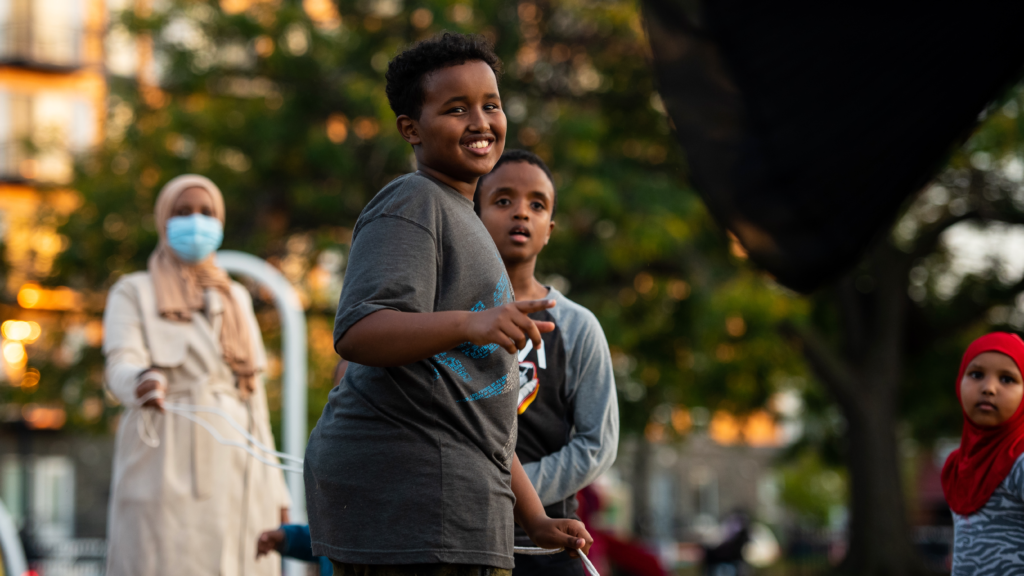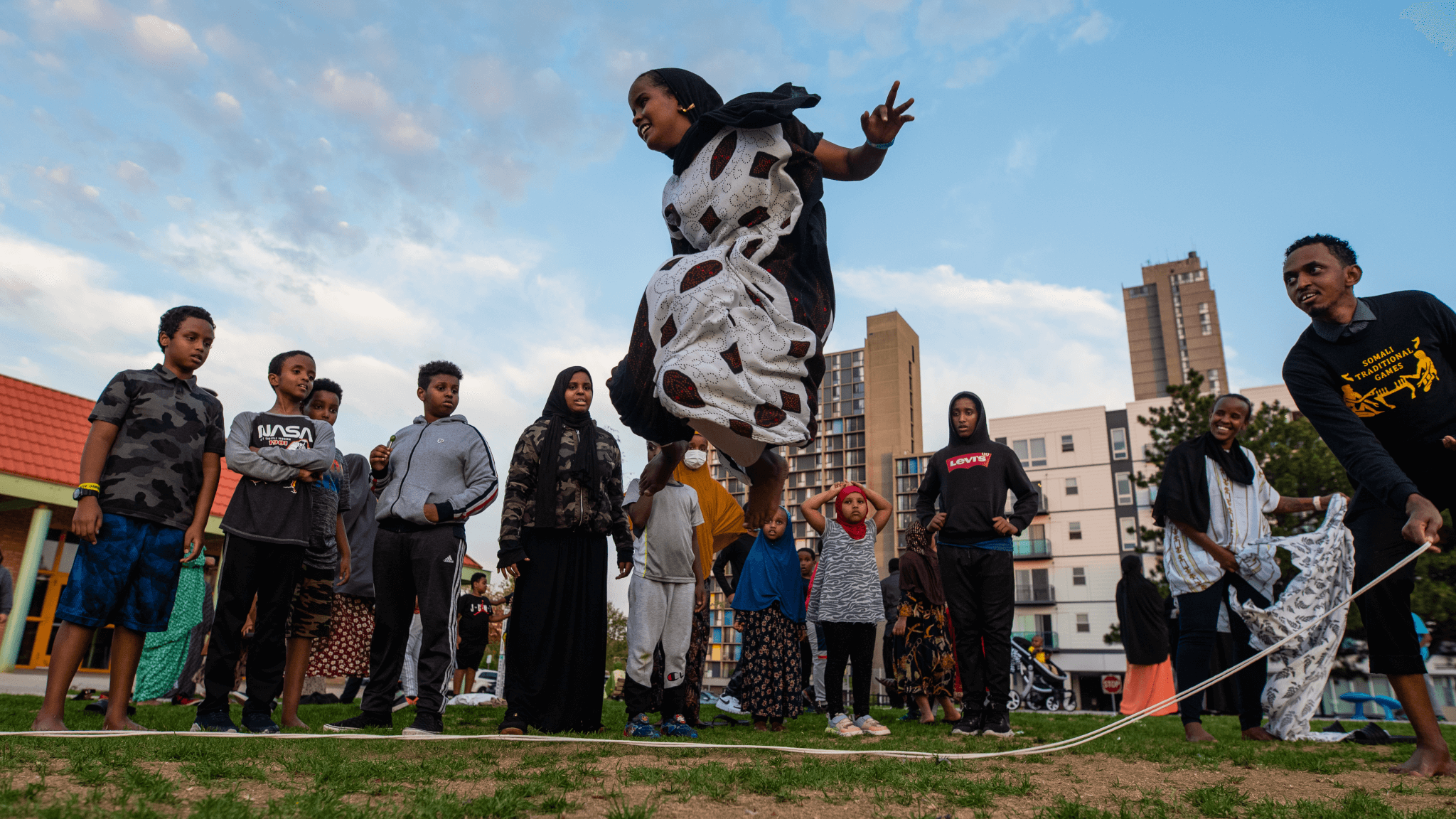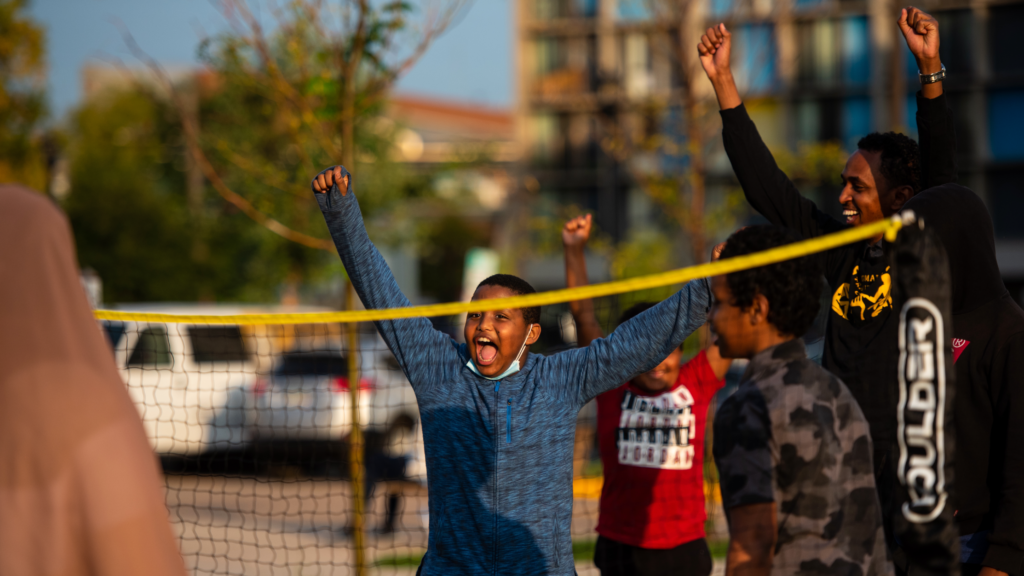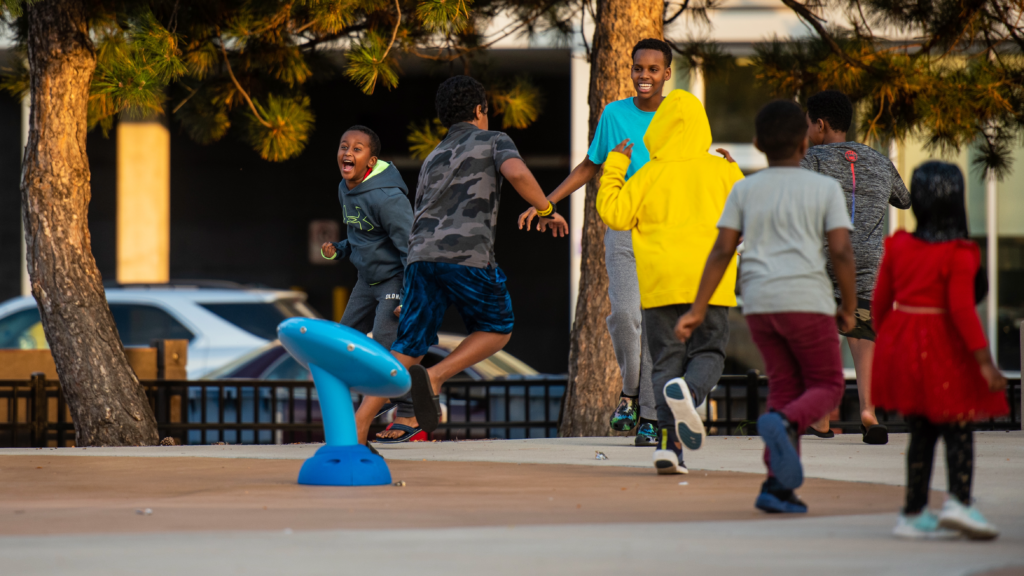How traditional Somali games are connecting culture and community
The cool of a clear October evening was settling in as the sun dropped behind the downtown Minneapolis skyline. Ukasha Dakane was heading home from Currie Park and the conversation turned to food, as it sometimes does at dinner time.
“Tonight, we had pizza, but we often have sambusas that the mothers make to share,” said Ukasha, talking about traditional Somali triangular fried pastry with savory fillings. “The mothers are always asking if they can help because they love bringing their kids to our games.”

Like the nightly snack, the program that brought more than 40 kids, mostly ages 6 to 19, and their families here is a mix of the traditional Somali and the new American. It’s Ukasha’s brainchild, who was inspired by his two young daughters to create an event centered on the playground activities he learned in his youth in East Africa.
“As my daughters got older, they were so excited to play simple traditional games at home, and it was a way for us to share stories about our childhoods, too,” said Ukasha, who is the founder and Executive Director of FRAYEO, a nonprofit that provides support services to East African immigrant communities in Minnesota. Last year, he organized a one-day event at Franklin Steele Park which “had a huge turnout – much bigger than we expected – the community really loved it and we knew we had to do it again,” he said.
More Than Just a Game
In 2021, with a grant through the Minneapolis Parks Foundation’s People for Parks Fund, Ukasha expanded Intergenerational Somali Games to three nights a week and moved it to Currie Park in the Cedar Riverside neighborhood, where a growing East African immigrant community is taking root. There’s no registration, it’s free, and everyone is welcome. The result is a beautiful alchemy of fun and fitness, community and culture.
“It’s very exciting to engage both the youth and their mothers. Some of the elderly Somali women who stopped by at our games the first night were in tears because they were reminded of a peaceful and beautiful childhood in Somalia when they used to play similar games with their families that are now scattered around the world,” said Ukasha. “These games bring memories of joy and they help the youth understand their roots and culture.”
The kids play a mix of American-style activities, including variations on volleyball and jump rope, but at the heart of the program are traditional Somali games, like hal-lugey (one legged jumping game), and dudumashow (hide and seek), Indha Xirasho (blind folding game)and dhaanto (a cultural dance).
The two most popular games this Friday evening were Kabey bilato, a type of tag where the fall of a flip-flop – sole or strap?! – determines which post kids race to, and aay aay or Gariir, a game of strategy and hand dexterity in which two opponents compete to see who best toss and balance 10 small stones.
“It reminds me of my childhood,” said Fadumo, one of the many mothers who have come to love the evenings as much as their children. Shamso agreed, “It’s amazing for moms – everyone is so nice, it’s safe, and the kids play a lot.”
The moms, who sometimes join their kids in jump rope or playing aay aay, also talked about how the games help them pass on traditions. “It’s a way to share our culture with our children,” said Amar. “If we teach them now, they can teach others in the future.”

Practicing Physical and Emotional Skills
Every mom was also thrilled with the physical activity their kids were getting – burning energy, elevating their moods, and staying off screens. “I got home from work this evening and didn’t even get to sit down,” said Fardowsa. “The moment I get home my kids say, ‘Let’s go!’”
Ukasha emphasizes the role that games have in wellbeing. In addition to “the health benefits of being outside, getting exercise and being active, the games teach team building, sharing, and working together,” he said, noting that it’s a traditional way for boys and girls from different families to learn to socialize and interact with each other.
During Violence Prevention Week in August, Ukasha worked with the City of Minneapolis Violence Prevention Department to host a special traditional games night that focused on conflict resolution and peace-building. “After playing, we had the kids stand in a circle and talk about what they learned from the game and taught them skills from restorative justice and peace building as a way to resolve their differences,” he said.
The sun now almost fully set, most families have gone home, but a few moms and kids linger to catch-up and connect. Thoughts shared earlier are echoed again and again. “Listen,” Suado had said. “This is about more than exercise and playing games. This is about different cultures coming together.” Her friend Ayan added, “Yes, this has to continue!”









